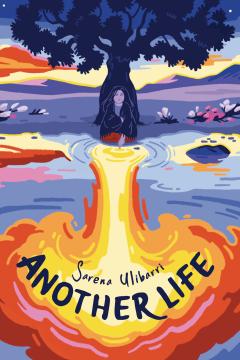
- Title
- Another Life
- Author
- Sarena Ulibarri
- Format
I read this novella on a whim after seeing in mentioned in a thread about Hugo drama. It’s a quick, straight forward, breezy read. I genuinely admire Ulibarri’s political optimism on display, and I found the character, plot, and style enjoyable. I have to say one thing rubbed me the wrong way. The book seems to want to take on sticky questions that swirl around “great people”, which is a subject I find important and worthy of deep probing. Thomas Jefferson was an eloquent and effective champion of the rights on man, and also a slaveholder apologist and rapist. Abraham Lincoln “freed the slaves” and was also deeply racist. Martin Luther King Jr. was a hugely effective champion of social justice, and a philanderer. This sort of thing runs deep. I’m not sure anything is untouched by it, and it is worth asking what it even means, ends aside, to be “good” if nobody really is. To me this calls into question the very words we use, or the very idea of some kind of summation of a human being.
Ulibarri seems to want to talk about this, or something like it, but she’s unwilling to give her protagonist any flaws. Instead, she invents a sort of genetic soul in an attempt to associate the heroine with a problematic past. But in-universe it doesn’t seem sensible that anybody would rightly bear any culpability for such a past. I think this is the point she’s making, in a round about way, but to me, it falls flat. It reminds me of a superman film, where the hero is in icon, and we’re forced to humanize them externally. It’s something that for better or worse I never find convincing.
But setting my personal hangups aside, I’m glad I read this book. It introduced me to the genre of “solarpunk” and gave me a chance to hear from someone who’s thought hard about ideas of communal living and justice in one particular way.
